#farmlands destruction
Text
In a dilapidated warehouse in Rafah, Soha Abu Diab is living with her three young daughters and more than 20 other family members. They have no running water, no fuel and are surrounded by running sewage and waste piling up.
Like the rest of Gaza’s residents, they fear the air they breathe is heavy with pollutants and that the water carries disease. Beyond the city streets lie razed orchards and olive groves, and farmland destroyed by bombs and bulldozers.
“This life is not life,” says Abu Diab, who was displaced from Gaza City. “There is pollution everywhere – in the air, in the water we bathe in, in the water we drink, in the food we eat, in the area around us.”
For her family and thousands of others, the human cost of Israel’s invasion of Gaza, launched after the Hamas attack on 7 October, is being compounded by an environmental crisis.
The full extent of the damage in Gaza has not yet been documented, but analysis of satellite imagery provided to the Guardian shows the destruction of about 38-48% of tree cover and farmland.
Olive groves and farms have been reduced to packed earth; soil and groundwater have been contaminated by munitions and toxins; the sea is choked with sewage and waste; the air polluted by smoke and particulate matter.
Researchers and environmental organisations say the destruction will have enormous effects on Gaza’s ecosystems and biodiversity. The scale and potential long-term impact of the damage have led to calls for it to be regarded as “ecocide” and investigated as a possible war crime.
continue reading
#israeli-occupied palestine#israeli war crimes#ecocide#gaza#environment#farmlands destruction#tree cover destroyed#groundwater pollution#sea water pollution#ecosystems destruction#free palestine
22 notes
·
View notes
Text
chriiist. as if the bloody floods werent bad enough we had twin tornadoes touch down
#no one is dead but the destruction is awful#people are getting their tools and cutting up fallen trees on the roads and in neighbours farmland which is good to see#scary fucking stuff climate change
5 notes
·
View notes
Text
getting into a heated one sided debate about the cultural social historical value of the interurban rail systems lost over time whos effective deaths came at the hands of general motors executive decision in such a manner that cut costs by dodging materials recycling initiatives during wartime. apologize to her (the public rail system) right now
#this post is about the a2ypsi interurban and the fact that willow run is right down the street and#by legislative guidelines the metal of the rails being removed should have been recycled into tanks and planes#but the gm bigwigs just paved over the rails and discarded the cars secretly. it was literally an urban#legend until a few years ago when they ripped up the street for repaving and found intact rails!!!#ypsi has so much deep lore related to the railroads it makes me so mad every time i think about it#smth smth the destruction of the american town at the hands of capitalism and the american#individualist ideal. ford killed ypsi's best farmland and gm killed the public commute#txt
5 notes
·
View notes
Text
just wait til luke hemmings discovers the word solastalgia
#it’s a big concept in environmental activism#at least in Australia in recent years!!#nostalgia for a place that isn’t the way it used to be due to various forms of environmental destruction#or just change in general eg from farmland into suburban#or the construction of a mine which is destructive but a lot of examples are from the hunter valley#which is just north of sydney and there’s a lot of mining there
0 notes
Text
May 10, 2024 - Hundreds of radical environmentalists and anticapitalists have broken through police lines and fences and stormed the terrain of the Tesla Gigafactory Berlin-Brandenburg.
They are attempting to stop the planned expansion of the factory, which would mean the destruction of surrounding forest and farmland. The factory also uses immense amounts of water, and all to sell shitty electric cars to give people the idea that personal consumption choices can save the environment from destruction, and make fascist Elon Musk even richer than he already is.
The actions in the past days have forced Tesla to temporarily shut down production at the factory. [video]
#environmentalism#anticapitalism#black bloc#direct action#love#romance#germany#tesla#elon musk#factory#2024#video#development#berlin#brandenburg#water rights#water protectors#electric cars#forest protectors#gigafactory berlin-brandenburg
10K notes
·
View notes
Text
A UN report says 96 percent of Gaza’s population is food insecure and one in five Palestinians, or about 495,000 people, is facing starvation.
Satellite images analysed by Al Jazeera's digital investigation team, Sanad show that more than half (60 percent) of Gaza's farmland, crucial for feeding the war-ravaged territory’s hungry population, has been damaged or destroyed by Israeli attacks.
Israel has killed at least 37,900 people and injured 87,000 others in bombings, by destroying healthcare that could have saved them, and by starvation.
[...]
In February, the UN Food and Agriculture Organization (FAO) assessed the agricultural and livestock damage across Gaza.
They found significant damage to:
- 626 wells
- 307 home barns
- 235 chicken farms
- 203 sheep farms
- 119 animal shelters
In addition, they estimated that 27 percent - 339 out of 1,277 hectares (3,156 acres) - of Gaza’s greenhouses were damaged by Israel’s assault.
Experts say military hardware and bombs have damaged Gaza's fertile soil for many years.
“There will be years of destruction because of the material used in the explosives and phosphorus bombs used there, this will affect the land and water in the long term,” agricultural consultant Saad Dagher told Al Jazeera.
2 July 2024
Geneva Convention, Protocol I, Article 54 - Protection of objects indispensable to the survival of the civilian population
1. Starvation of civilians as a method of warfare is prohibited.
2. It is prohibited to attack, destroy, remove or render useless objects indispensable to the survival of the civilian population, such as foodstuffs, agricultural areas for the production of foodstuffs, crops, livestock, drinking water installations and supplies and irrigation works, for the specific purpose of denying them for their sustenance value to the civilian population or to the adverse Party, whatever the motive, whether in order to starve out civilians, to cause them to move away, or for any other motive.
420 notes
·
View notes
Text
Today, strawberries have replaced much of the citrus and olive trees in the strip, and despite the relatively small area of farmland used for this sector, it enjoys high economic and social value. In all of the ways that citrus cultivation has been targeted, strawberries seem designed to survive Israel's eco-colonial practices. Strawberries are able to survive on partially saline water, they have faster production cycles, are easier to cultivate and replant after destruction and uprooting, are more mobile after moments of displacement, require less space and distance between each planted crop, and enable farmers in Gaza's northern peripheries and along the buffer zones to remain visible to the observing Israeli occupation forces. As a crop with limited historical roots in the country, it adapts well and is highly versatile. The use of compost for the cultivation of strawberries enables significant increase in fruit productivity, saving Gazan farmers the use of precious water supplies and decreasing its need for the use of fertilizers.
Despite this, the conditions of Gaza's ongoing colonial isolation and erasure make it increasingly impossible for farmers to sustain their livelihoods off of the land, even with strawberry production. In today's Gaza, as the agricultural export industry is fully reliant on the Israeli permit system, strawberries are slowly being replaced with other low-growing, fast-yielding, cost-effective and high-demand fruits and vegetables. Indeed, as a colleague at the Union of Agricultural Work Committees, the largest agricultural development institution in Palestine, told me during my time in Gaza, the most recent crop to slowly begin its replacement of strawberries in this line of forced colonial transition is pineapple—with the first pineapple farm planted in Khan Younes in 2017.
Examining the conditions that make strawberry production more practical and fuel the transition from citrus production requires examining the ongoing Israeli colonization of natural resources that supplant and suppress traditional modes of relating to nature. Witnesses of Israeli neo-colonial violence, the disappearing orchards in Gaza mark its new disconnected reality. The transition from the orange to the strawberry—and perhaps later to pineapple—is more than a shift in markets and produce. They affect the history and identity of Palestinians in Gaza. The links between cultivation and national or communal identity are well-known and documented in other contexts, including their intersection with colonial nation-branding. But in the context of aggressive climate change the instabilities, tensions, and erasures that come with transitions in vegetation are growing increasingly stark. For example, in the case of the Swiss canton of Valais, global heating has resulted in the growth of cacti, Opuntia, that are proliferating on the mountainsides of the canton, encroaching on natural reserves and causing a biodiversity threat. Used to "seeing their mountainsides covered with snow in winter and edelweiss flowers in summer" warmer and drier temperatures have given way to what is named in media coverage as an "invasive species colonizing the slopes." Launching an uprooting campaign in 2022, the press release stressed that "this invasive and non-native plant is not welcome in the perimeter of prairies and dry pastures of national importance." Evidently the discourse mobilized is dominated by aggressive language of aliens and invasion, which contributes to the use of violent and war-like metaphors to push for pre-emptive and combative control. In the Gazan case, the transition, as well as local responses to it, are less pronounced and weeded through long-term colonial policies imposed by the occupation. That said, the transition to strawberry cultivation nevertheless carries a similar ecological, cultural, and socio-political impact. In place of the orange, the strawberry is surfacing as the symbol of Gaza, redrawing the boundaries of the identity of its besieged inhabitants. Whereas in the past the orange was a continuous link between Gaza and the rest of historic Palestine, with deep generational roots and a symbol of steadfast and continuous presence, the abrupt transition from oranges to strawberries distances Gaza from the constructed identity and vegetal knowledge production of Palestinian farmers elsewhere. Put differently, this symbolic and political transition at the level of fruit production can be seen as another mechanism through which Israeli neo-colonial violence reifies Gaza as an enclave: divided and partitioned from the rest of Palestine.
Shourideh C. Molavi, Environmental Warfare in Gaza: Colonial Violence and New Landscapes of Resistance
285 notes
·
View notes
Text
Where King's Landing Gets Its Food (and Why the Blockade of the Gullet Has No Effect on Overall Food Security)
King's Landing is the capital city of Westeros. With a population of roughly half a million people, it needs to get its food from somewhere. But where?

In close proximity to the Crownlands and King's Landing is the Reach. The Reach has incredibly fertile farmland and is responsible for growing food for the majority of the realm. Most notably, this is where the majority of King's Landing's food supply comes from:


As you can see on the map, the Reach and King's Landing are connected via multiple direct land routes:

At the time of the start of the Dance of the Dragons, the land connecting King's Landing to the Reach was held by the Greens, and later, most of the Reach had declared for the Greens. Therefore, there would have been little issue in continuing the transport of food from the Reach and into King's Landing. This map is roughly how the map was divided at the start of the Dance (however, following the campaign towards Rook's Rest, the Greens had claimed areas north of Kingslanding held by the Darklyns and other Black supporters, giving even more of the area surrounding King's Landing to the Greens):

Since the majority of food for King's Landing comes from the Reach, and since the Reach and the areas connecting it to King's Landing are held by the Greens, food supply should not be an issue, nor should a blockade of the Gullet have any significant impact on the ability of the smallfolk in King's Landing to access food.
What, then, is the impact of the blockade? What comes into King's Landing on normal occasions and therefore might not get through during a blockade? Since King's Landings gets all the food it needs from the Reach, Blackwater Bay and trade and passenger routes that run through it are most commonly bringing travelers from other bays or Essos and goods from the Free Cities such as spices, silk, and other luxuries. This map helps to visualize the trade that occurs in the Narrow Sea:

The primary goal of the blockade of the Gullet by the Blacks and the Velaryon fleet was likely more about controlling the waters of Blackwater Bay and guaranteeing no naval presence of the Greens could establish itself near King's Landing, rather than a concerted attempt to keep goods out and away from the city, due to the lack of impact this would have on supplies and resources for the war effort.
In the books, the blockade does not result in issues in food security, as food comes from the Reach and not by sea. Although it may have had an impact on certain industries and access to employment, which could have indirectly led to issues in some groups of people being able to afford food, by no means did it result in a lack of food. Therefore, there was no cause for riots this early into the war, and in fact, none actually did occur while the Greens held King's Landing.
Riots due to food security did eventually happen in King's Landing, but this was years into the conflict when, due to the burning and destruction of crops in the war and the disruption of land routes by which to transport food, there was less food coming into the city. At the same time, smallfolk were subjected to high taxes by the Blacks who held the city, which compounded rising food prices amid the scarcity. This resulted in riots against the Targaryens, and following the death of Queen Helaena, the smallfolk stormed the Dragonpit, killed the dragons, and drove Rhaenyra from the Red Keep and to her ultimate death.

In the show, the blockade apparently results in mass starvation after only a couple of weeks, despite the city realistically getting food from the Reach and certainly having stores of food to last during possible siege. When word is spread of the Greens' supposed feasts while people starve and the people see the sheeps brought to the Dragonpit to feed the dragons, and when Rhaenyra sends a boat full of fresh produce from Dragonstone, a volcanic island hundreds of miles away, the smallfolk forget that the Blacks are responsible for the blockade in the first place and praise her generosity. Then, they attack the two Green Queens when they are leaving the Sept, throwing food at them despite the apparent food insecurity and shouting about their true Queen Rhaenyra.

Also, despite the blockade being an issue, and despite Caraxes and Meleys out of the picture, Aemond doesn't use Vhagar to destroy the blockade. Nor do the Greens use the fact that Rhaenyra and the Blacks ordered the blockade to their advantage, despite them using other events to help themselves in previous episodes. There is no explanation of why it would be that food was not coming from the Reach. The Blacks were not attacking supply or food trains along the routes on land, nor is it mentioned that anyone was blocking the routes and not allowing food to pass through these land routes. Ostensibly, we're supposed to believe that the city imports the entirety of its food supply from overseas despite having lands under its jurisdiction from which to get food.
Why move the riot up in the overall progression of the story, as the cost of in-universe logic and consistency? Moving it so it happens while the Greens are in power allows for the show to demonstrate how the smallfolk hate the Greens. Despite season 2 episode 2 showing the smallfolk mourning for and sympathizing with the two Green Queens, they would apparently rather support their "true queen" who they believe had a 6 year old decapitated in his bed and who currently is causing the food insecurity with her blockade all because of one boat of food being sent through and Mysaria's agents spreading stories about food in the Red Keep. This allows the Greens to be continued to be seen as in the wrong and further adds more evidence to the viewer that the smallfolk suffer under the leadership of the Greens and wish for their "rightful" queen to sit the throne instead. Just days earlier the smallfolk mourned with the Green Queens, but now they're with Rhaenyra and want to hurt them. This also allows the writers to take the parts of the book that say Alicent and Helaena were beloved of the smallfolk and officially brand those sections as "Green propaganda."


Overall, the deviation of the show from the source material is illogical and unreasonable given the information available. The blockade would not have resulted in starvation within weeks, due to alternate primary sources of food and the existence of food stores within the city. The smallfolk would be aware that the Blacks controlled and the blockade and would not praise them for a demonstration of such via one shipment of food sent through, especially following the recent funeral procession of Jaehaerys where the smallfolk learned of Rhaenyra the Cruel's character (and similarly, the sight of Meleys' head would not have motivated them to support Rhaenyra or mourn the "beloved" dragon as it recently murdered hundreds of them unnecessarily when Rhaenys refused to use the back exit to the pit so she could come face to face with the Greens at the coronation). If in actuality the blockade did in fact cause issues for the Greens, which it really would not have done, Vhagar would have been used to destroy it, lacking the threat of large dragons on the Black side at this point.
All in all, this plotline was not thought through and only serves to highlight the incompetence of the writing team and their ignorance of in-universe mechanics and implications and the world in which the story takes place.
235 notes
·
View notes
Text
A large Milt post.
The funny thing about writing characters is that you often forget how little of them you've shown off. Milt's pretty detached from the plot (not even being explicitly mentioned in-game) so I guess it's fair to say that the audience doesn't really 'know' him well.
Given how much detail the audience knows about Crown's life during the war and immediately after it, it'd be interesting to mention a little bit about Milt's war history, especially since Crown's time during the war is pretty important to understanding a part of his character - why he was so dead-set on changing the world. Ironically, Milt's experiences were very different in a lot of ways, but wound up bringing him to the same place. This information would be obscure, but likely known to anyone who'd want to study him in DT's universe, so I guess there's no harm in mentioning some of it:
Milt was born into a more affluent family than Crown's and didn't face the same kind of nail-biting poverty that Crown did as a child. He was a Corporal (Acting Sgt) by the end of the war and had a distinguished record as a war hero. He was very well respected by those in his platoon, having a reputation for honesty, kindness and always following through on his word, no matter the circumstances. However, was also known to be someone you didn't wanna push around or back into a corner, as he was fiercely intelligent and very determined - not the sort of person you'd want to wrong.
He was a part of the DDay landings during the European campaign, an event he remembers as a terrifying and chaotic loss of life. Milt later rejected claims of his valor during the landing in the years following the war. After the fall of Berlin in mid 1945, Milt rejected the opportunity to remain in Europe as an occupying force (which was available to him because of his reputation/rank) in order to join the Pacific Theater. This was partially out of a sense of survivor's guilt (personally knowing many soldiers from his town who'd died in the campaign) and partly because he feared returning to relative peace and being alone with his thoughts again.
Milt's time in the Pacific Theater isn't nearly as well known due to how unwilling he was to talk about it to anyone, though he once opened up to Marla about it. Milt witnessed the destruction of Hiroshima from a distance, an event that's forever etched into his mind.
When Milt returned to the States, with a military scholarship, he decided to focus his efforts into trying to make the world a better place and began studying science. His dream was to develop a new form of irrigation that could terraform large swathes of land into farmland so the whole world could be fed. Due to his intelligence and determination in seeking his goal, he wound up taking to his work well. He took a keen interest in the new concept of the structure of DNA in particular, which was discovered in the early 1950's, believing that genetic modification could be used to create new forms of plant life that could feed vast amounts of people. Milt never ceased contact with his contacts from University, nor lost his love for science and the pursuit of a better world through the advancement of technology/science. But, most of all, he never abandoned his dream of making the world a better place, one where the horrors he'd witnessed as a younger man (such as mass human death, starvation and mass-chaos) could never happen again.
Shortly after graduating, he attended a political rally in Madison, Wisconsin and met a passionate public speaker/local business owner who'd change the course of his life forever. The rest is history.
166 notes
·
View notes
Text
I keep thinking about a post or a comment I saw months ago that basically said, "if this isn't a genocide then why haven't I seen any photos of Israel on fire"
So here are some photos of Israel on fire.
Starting with the obvious:
October 7th, 2023. Hamas attacked 21 towns. Be'eri, Kfar Aza, Re'im, and Nir Oz were essentially burned to the ground; it will take years to rebuild them.
Satellite images during the attack show fires burning all over.

On October 7, Israel’s farming industry lost approximately 40% of its workforce and 30% of its physical area when the nation’s agricultural center became a warzone and the site of mass death and destruction.
The war forced thousands of people in Israel’s north and south to abandon their homes, leaving hundreds of acres of farmland to lie fallow while the IDF secured the area from further Hamas attacks.
Devastating losses
About 20% of Israel’s agricultural land is located in the Gaza border area.... 75% of the vegetables consumed in Israel usually come from the Gaza border region, plus 20% of the fruit and 6.5% of the milk.
Meanwhile, Israel’s northern region — which has been facing increasing rocket attacks from Hezbollah in Lebanon — accounts for a third of the country’s agricultural land, and according to the Agriculture and Rural Development Ministry, about 73% of its domestic egg production is concentrated in the Galilee and Golan regions.
Hezbollah's rocket attacks upon Israeli civilian areas, and Hamas rocket attacks from Lebanon, have caused massive fires across northern Israel.
The elimination of Israel has been a primary goal for Hezbollah, just as it is for Hamas and its affiliated groups.
Unlike Hamas, which targets Jews per se and cites the Protocols of the Elders of Zion to explain why, Hezbollah's reasoning follows that of the dictatorship of Iran:
"God, according to Hezbollah theology, cursed all Jews as blasphemers damned for all time and throughout history. Hezbollah, as well as the political/religious leaders of Iran, believe that the destruction of Israel will bring about the 'reappearance of the Imam (the Shiite Islamic Messiah).'"
Fire and brimstone it is, I guess.
April:
Nature and Parks Authority says that some 80,000 dunams (20,000 acres) in the Upper Galilee and Golan Heights have gone up in flames since the start of the month.

The Katzrin fire in early June:



Since the fighting erupted, the total scorched area in Israel is three times greater than the area consumed by the two greatest fires in Israeli history: the Sha'ar Hagai blaze west of Jerusalem in 1995, and the Mount Carmel forest fire in 2010. In each of those blazes, some 20,000 to 25,000 dunams of forest went up in smoke.
The total area burnt down now is also three times the combined area incinerated in 2016 when extreme weather conditions caused a wave of fires that consumed some 41,000 dunams. A similar size of woodland and forest also burned down during the Second Lebanon War. In 2019, a huge blaze consumed large swaths of central Israel's Mevo Modi'im community.

According to a Haaretz analysis of satellite images, which matches with estimates by authorities, some 210,000 dunams (about 52,000 acres) of land burned down in Israel and Lebanon: about 150,000 dunams in Israel from Hezbollah attacks and Israel Defense Forces anti-aircraft fire, and around 60,000 dunams in Lebanon.
The burned-down areas in Israel stretch over a large area in the Galilee and Golan Heights, while in Lebanon they are concentrated near the border – due to the Israeli military policy of setting deliberate fire to [complex fortified] areas there in order to keep Hezbollah combatants away and to damage the vegetation that provides them with cover.
...These included trenches, bunkers, rocket-launching positions and arms storage sites.
June 4:
'If the fire spreads to the mountain – everything changes': Residents try to survive amid Hezbollah rockets

As rockets rain on their homes and wreak havoc, some Israelis believe the government's lackluster response shows it has forfeited the north to terrorists. "This is Hezbollah's new strategy – intentionally firing on open areas to ignite fires and burn the north," says former mayor.
Gay Eyal, the security officer of the Golan Regional Council, hasn't slept a wink since yesterday. More than 20 communities in the north, including two evacuated towns of Avivim and Dovev, fall under his wide purview.
"It seems this is the new method of the enemy: They see and hear what's happening – they understand burning the north is more effective," Eyal stated grimly. "We're coming off a night of fires. And this morning another blaze started in the Yir'on Forest. Our biggest fear is the fire spreading to Mount Meron. If that mountain ignites, all the communities of Meron, Safsufa, and the Galilee panhandle will be in danger."
Eyal claims they prepared in advance, positioning 24 water trailer rigs of 1,000 liters each in every community. "It's a drop in the bucket. We geared up this past year with many water trailers to assist with firefighting, but it's not enough. We're working with fire stations in Safed, Kiryat Shmona, Tiberias, and Carmiel – our council is dealing with four fire stations. The firefighters are doing everything they can, working ceaselessly. They're tearing themselves apart, but the fire is spreading like a field of thorns."

...Another resident from the north who was out all night at the various fire scenes also tells Israel Hayom this morning: "It's impossible to describe what we went through here last night. Everything burned, an entire region was ablaze. I drove between the fruit orchards, between communities as the fires raged, and my heart burned. The feeling is terrible, of destruction. There's no way to explain the feeling of people watching their life's work burning before their eyes."

June 12:

Hezbollah launched some 215 rockets and several more missiles and drones at northern Israel on Wednesday, in what it said was a response to the killing of a senior commander in the terror group by an Israeli airstrike a night earlier.
The successive Hezbollah attacks began on Wednesday morning with a barrage of at least 90 rockets fired at several [CIVILIAN] areas in northern Israel, including Tiberias — for the first time amid the war — Safed and Rosh Pina, sending tens of thousands of people to shelters, as Jewish Israelis celebrated the Shavuot holiday.
The Israel Defense Forces said another 70 rockets were then launched at the Mount Meron area, home to a sensitive air traffic control base. Ten more rockets were fired at the northern community of Zar’it, and an anti-tank guided missile struck a factory of the Plasan armored vehicle manufacturer in Kibbutz Sasa, causing damage.
Later in the morning, a drone launched from Lebanon detonated in an open area near the northern community of Zivon, local authorities said.
Several more rockets were fired in the afternoon hours at the upper and western Galilee areas.
#fire tw#israel hamas war#hezbollah#jumblr#free lebanon too#do people outside of jumblr know that hezbollah basically runs Lebanon and it's Bad Actually?#fuck hamas#wall of words
144 notes
·
View notes
Text
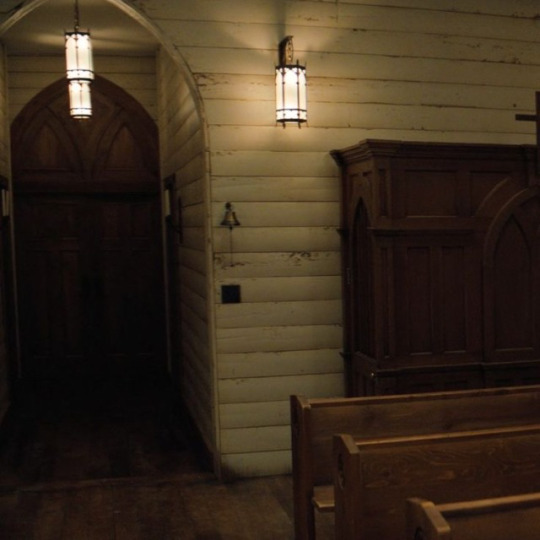

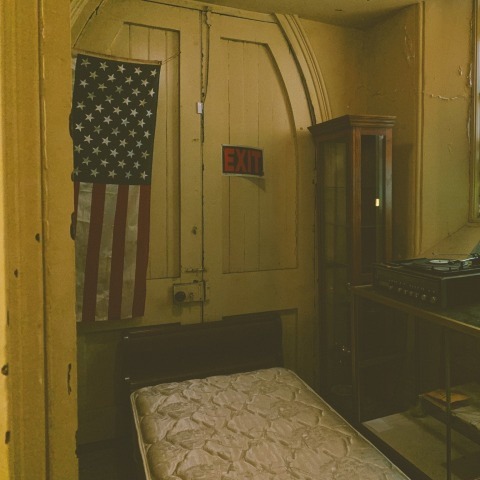
savior | p. wb
(???)!wonbin x fem. reader | 5.2k words
the treacherous weather brings an someone to your churches doorstep. he thanks you for saving him in the only way he knows how.
contains: sex in the church, implied virginity loss, wonbin is either an angel or a succubus you decide.
sacrilegious masterlist

when it rained, it rained hard. thunderclaps boomed and lightening touched down somewhere near you. being surrounded by farmland only made everything worse, the smell of wet manure would settle over your village like a thick fog.
another strike of lightening caused the building you were in to shake. dust fell from the ceiling. a bucket that was collecting water droplets gave you an occasional sound. other than that it was quiet, everyone was long gone.
you had become the keeper of the church house. it was something like a family heirloom, passing down from generations. the man of the church would become the pastor, leading sermons and sunday service. the women would become the keeper of the church. making sure the church remains in good condition. over generations your building had become rundown. it was smaller compared to other churches. the sanctuary was half the size of the church one town over. the sanctuary could only fit two rows of pews with four pews in each row. your loyal congregation sat shoulder to shoulder on sunday’s, fanning themselves with the weekly programs. the kitchen was so small it barely fit the oven and fridge. many parishioners cooked food and brought it from home, trying to get a anything cooked in the kitchen was useless.ww the children’s prayer room could barely first ten people. because of limited space kids were moved from youth group constantly. when someone in the congregation would have a child someone from youth group would “graduate” to join the older people in the sanctuary.
besides the sanctuary, kitchen, and youth group room there was the closet that doubled as your makeshift bedroom. you didn’t usually sleep in the church, preferring the comfort of your own bed. but the rain came suddenly while you were closing up and trying to find your way back home in this weather was a safety hazard. you didn’t mind, you liked hearing the rain beat down against the walls of the church. you remember the story of the tornado that caused destruction across your town but the church remained intact. you feel safer here than you did at home. this place was protected, and by extension so were you.
you wandered between the pews looking for trash. you also sometimes considered sleeping on the polished wood of the pews, just to have a change of scenery. the time you spent in the church let you know the oratory like the back of your hand. after eating some food left over in the fridge you eventually settled into the storage room. you put out your wicker lamp and put it on the drawer next to your setup. you changed into your white nightgown and laid on your cot, pulled the blanket up to your chin and fell asleep to the sound of rain falling and lightening strikes.
you don’t know how long you were asleep when you heard banging on the door. it started off as something you heard in your subconscious, far away from the plane of sleeping that your mind was in. like an alarm, the pounding on the door became louder and more constant. you sat up in bed, heart beating fast. you weren’t sure if your groggy mind was playing tricks on you but when you heard three more knocks you knew it wasn’t your imagination. you carefully pulled yourself out of bed, grabbing the wicker lamp that had been put out. you turned the dial on the kerosine, making a low flame illuminate the space in front of you.
you slowly opened the creaky door of the storage room. you tiptoed through the rooms of the church, trying to figure out where the banging was coming from. any other time you would’ve ignored it, but the inclement weather made you compassionate. if someone was looking for refuge from the rain, they had come to the right place. you look through the tiny peephole of the door. the door knocker had been broken a long time ago, so you see the man through the peephole bang on the door again. the vibration from the knock pushes you back but once he is done you go back to look at him through the peephole.
the man looks like he is a far from home. you know everyone in your small township, many of them you have known since you were a child. you did not recognize the mans face. you would’ve remembered seeing a face like his. he looked serene even drenched in rain. his long wet hair was pushed back, uncut but proper like he was royalty. someone as beautiful as him didn’t belong in a wretched place like your home. he knocked again, pulling you back into the current situation. you cleared your throat, trying to sound domineering.
“who goes there?” you say.
your voice echoes inside of the church, but the man on the other side can barely hear you.
“i seek refuge from the rain.” he yelled through the door.
his voice was almost carried away by the wind. you pressed your ear to the crack in the door.
“where do you come from?” you yell back.
“i come from two towns over.” he yells.
the rain only picks up, and you can hear a thunderclap in the distance.
“what business do you have here?” you say.
your heart pounds in your chest. although you do want to give one of god’s men refuge from the rain, being alone with a stranger wasn’t safe.
“i came to retrieve cattle but i got lost in the rain. i was able to find a stable for my horses but i have nowhere to lay my head tonight.” he talks to you in a normal volume, almost pressing his lips against the door so you can hear his voice.
silence follows his answer. your blood pumps in your ears. you look directly behind you down the righteous path and look at the statue of jesus christ that stands behind the podium. you look to it for an answer as another bolt of lightening touches down.
“do you fear god?” you ask finally.
a god-fearing man would never cause harm to the keeper of the church, or lie in the presence of god.
he says nothing on the other end of the door. all you can hear is rain beating down on the old wood floors, the dripping water in the bucket behind you.
“i am a god fearing man of flesh and blood.” he says finally.
you free the doors of its large bolt. the old door hesitates and you have to pull harder than usual. the door suddenly swings open from the wind, you use all your strength to hold it. the man stands before you, drenched with a smile on his face. he bows his head to you, a sign of gratitude for taking mercy on him. you can’t help but stare at the man. he says the rain took him by surprise but he looks like he’s in control of the situation.
“come in. the rain still falls” you say hiding behind the open door. the man walks in, wet clothes dripping water all over the floor. he continues to walk in as you close the door behind him, returning the rusting bolt to its place. you are careful to avoid his wet footsteps, making the floorboard creak underneath the fraying rugs.
you still hold the wicker lamp and it illuminates the man in front of you. he appeared to be the same age as you, the typical age for errand boys. you don’t doubt his story, cattle trade was something your village was known for. the rain confused him from his path and the wind brought him to your doorstep. you can’t deny a man with his face asylum. he seems to know it, oozing confidence that makes you believe he has been here before. you hold the wicker lamp to his face to see if you recognize him from anywhere.
“what is your name, god fearing man of flesh and blood?” you ask.
“wonbin,” he says. even his name is something you’ve never heard before. he says it like it’s a holy name borrowed from the bible itself. “thank you for letting me in.”
“do you know of this church?” you ask him.
you can feel his gaze over your body. you had forgotten to put on an extra layer of clothes in your haste. you were free of your usual wrapping, only having your thin white night gown in your sleep. you shake the wicker lamp and he returns his gaze to your face.
“how did you know to come here?” you rephrase the question.
“older townships stick to the old ways.” he says. he’s referring to the practice of the church keeper. “did i wake you?”
you nod. “it’s closer to first light than it is to last.” you say.
“i was wandering for what seemed like ages. i could barely see what was in front of me, then i appeared in front of this oratory.” wonbin says, motioning to the interior of the building.
you’re suddenly embarrassed of a place you’ve always called your second home. people in your parish understand your church and all its ailments. they don’t mind the leaking ceilings and the frayed carpet. they don’t spare a second glance to the chipping paint or the piano missing keys. now there’s a stranger in your presence, a beautiful stranger who appeared before you. he stands by the aged door and you want to apologize profusely that the building isn’t up to your standards, that it’s a family heirloom older than the ground it stands on.
“you came to the right place, traveler.” you hand him the wicker lamp.
he takes it and holds it at his side. the change in light illuminates the space behind him and you look at the statue of christ. all of the statue is illuminated except for a shadow casting over its face. you can almost make out something you have never seen in the darkness, something that sens shivers up your spine. wonbin clears his throat.
“is there a chance i can borrow spare clothes? i fear the weather might cast a cold on me if i don’t warm up soon.” he says. his wet clothes stick to him like a second skin. he drips water on the carpet he stands on. you look at the water that falls from his hair and lands on his shoulder. everything about him is otherwordly. you clear your throat.
“my apologies. follow me.” you say.
you lead wonbin to the storage closet, where there’s a crate of clothes. he doesn’t come all the way into the room, you’re not sure he could fit anyway. as you look through the crate for clothes that would fit him you can see the wicker lamp light up your room. you’re sure wonbin sees the simple mattress you sleep on. you’re sure he’s used to sleeping on covers stuffed with wool and pillows filled with downy feathers. the man shouldn’t be sleeping on anything less.
you pull out the clothes and set them on top of your bare mattress. you hold your breath, hoping the clothes would be to wonbin’s liking.
“thank you.” he says. in front of you he begins to take off his clothes and you avert your gaze.
“are you hungry?” you ask. your eyes follow the cracks in the floor. you examine every plank on the floor, too scared to look up at the man getting undressed in front of you.
“i’ve already eaten.” wonbin says. you can hear the smile on his lips as you fumble with your words and pinch the fabric of your nightgown.
“i will be in the sanctuary.” you say before you excuse yourself. he watches you with a smirk as you leave, closing the door partially behind you.
as you sit on a pew in the sanctuary, you look towards the storage room. you wonder what wonbin does in there, if he is fully naked in the same room where you sleep at night. men don’t usually have this effect on you. you had never wanted to see a man more than you wanted to see wonbin. you were regarded as a beauty in your village and held in high regard as someone who guards the place of worship. you weren’t caught off guard by men staring or trying to court you. no man wowed you, until you saw the being that washed up on your doorstep. he was beauty like you had never seen, lovely beyond imagination. he was a prepossessing sight, the way his hair framed his face and how his lips were shaped like the heart that beats inside of you. you found yourself trying to take a peak at him through the crack you left in the door. you leaned back and forth in the pew subtly, trying to get a view of him.
just as you were about to give up, you saw his bare chest first. you would’ve never thought underneath those clothes he was hiding even more beauty. his stature matched his body, pretty and smooth. wonbin’s chest was broad and his body was lithe. he had a slender sleek muscle to him, unlike the larger boys in your village. they had built up muscle over the years of doing farm work and hard labor. next to them wonbin was different. there was no doubt in your mind they would mock him and call him things like a pretty boy, or wannabe royalty. you didn’t see it as an insult and you hope wonbin didn’t either. he was beauty and grace; fully on display just for you.
his skin had a glow, probably from the rain outside reflecting off the light coming from the wicker lamp. regardless, it made his skin look supple and soft. it was like he had gold hiding underneath his skin, causing him to radiate a gold tan. you thought about how he could’ve managed to keep his body so toned and even. nothing looked out of place on him, everything intentional. you saw the outline of wonbin’s back as he turned. you tried to look away but you were drawn in as the man was seemingly posing for you. his slender muscles rippled underneath the skin of his back. you couldn’t stop your eyes from sinfully dragging down his body.
you were shaken to your core seeing his manhood. it bobbed in the blessed air of your bedroom. it wasn’t scary, the type of manhood that enticed you. the shadow his dick casted overtook all your feelings, all your teachings. you could write your own bible about the body you saw through the crack of the door. it was like the garden of eve, you don’t know if you could resist taking a bite.
when you dragged you gaze back up you saw the man looking at you. you were basked in the shadows, hidden in the dark of night but you found his gaze to be piercing and direct. you immediately turned your body to look away, instead looking straight forward down the pews at the pastor’s podium. you could hear the door of your bedroom shut.
maybe it would be better if wonbin never came out, if you didn’t see him until the rain stopped and you bid him farewell and good tides on the rest of his journey. temptation came to your door wearing soaking wet clothes and you let him inside of your church. what were you going to do?
you had moved to the center of the santuary. maybe if you stood in the same place the pastor walked down to give his sermon you can fin the answer to resisting temptation. as you stood in between the back row of pews, temptation cam out of your bedroom. he comes out looking like royalty in the tattered clothes of a peasant. the aged clothes had turned an almost disgusting shade of off-white, but on wonbin it complemented his skin. you begin reciting bible verses about temptation, trying to dull the ache you felt in the pit of your stomach. you stand from the pew to welcome back your guest. no words come out of your mouth, the only sound is the occasional water droplet caught in the bucket by the podium.
“the clothes fit nicely.” you say.
no one undergoing a trial should say, ‘i am being tempted by god,’ since god is not tempted by the devil, and he himself doesn’t attempt anyone. but each person is tempted when he is drawn away and enticed by his own evil desire.
wonbin takes a step towards you down the carpeted path towards the podium. the wicker lamp is held in his hand, he looks otherworldly with the shadows casted over his face. you take a step backwards.
and do not bring us into temptation, but deliver us from the evil one
you take another step back. with each one you take, wonbin takes one in a longer stride. he’s getting closer and closer to you. you feel drawn to him but you try your hardest to fight it.
watch and pray that you may not enter into temptation. the spirit is willing, but the flesh is weak.
you are a weak woman. the daughter of the priest who is straying the furthest from god in the house he built. you thought praying would keep temptation away, but maybe you were praying for him the whole time. the way he came towards you made you feel like you were being hunted. another about to fall prey to him. you wanted it to happen. was it so bad to be wanted? the way wonbin looked at you had to be something out of the bible. if it wasn’t why did it feel so good. you almost trip over a snag in the carpet as you take another step back.
“i am writing these things so you may not sin…”
your back hits the podium.
“but if anyone does sin, we have an advocate with the father—jesus christ.” wonbin says.
you felt the air around you freeze. even the rain falling from the ceiling seems to halt. you stood before the man in front of you, doubting if he was of flesh and blood. no person could read your thoughts, no man ever knew what you were thinking. so why did wonbin have a smile on his face reciting part of the verse you had started. he closed the space between you two, putting a soft hand on your chest. your skin was covered with your night gown, but his touch seeped through like rain. it was almost as if he was holding you, smiling at you expectantly to keep talking.
“he himself is the atoning sacrifice for our sins.” you say.
“and not only ours.” wonbin says.
he puts your hands that rest on the podium behind you on his body. you suddenly feel possessed with the strength to rip his shirt open. you want to hear the buttons pop all over the floor, hear the sound of fabric tearing. your focused on the bare chest you saw in your room, rippling muscle and soft skin. wonbin uses his other hand underneath your chin, slowly bringing your gaze up to meet his piercing stare.
“but for those of the whole world.” you say, finishing the bible verse.
wonbin slowly starts working on the buttons of your night gown. you check to see if he’s real, touching his face. you press the pad on your fingers to his lips, plush and rosy. he licks your thumb and you let out a shaky exhale.
“thank you for opening your doors for me.”
you nod your head in acknowledgement, throat too dry to speak. wonbin takes your hand that touched his lips and slowly guided it under the waistband of his pants. you grazed his manhood, thick and solid. it twitched underneath your touch.
“can you feel my gratitude?” he asks.
you nod and take all of him in your hand, wrapping around his shaft. wonbin lets out a breath and you feel emboldened to squeeze. a sound escapes his lips and you suck in the air around you both like you are trying to catch the sound.
“i can feel it.” you whisper.
your night gown has only a few more buttons left. you can feel the draft in the church come through the open buttons. you don’t know if it’s the cold air or wonbin’s lips that cause goosebumps to erupt over your flesh.
“what will you do with it?” wonbin asks.
you can feel his lips move to your neck. he takes your earlobe into his mouth. it’s a sensation you’ve never felt before. you squeeze his shaft again. this time wonbin lets out a moan right in your ear. it’s beautiful and it makes you pump him in your fist. you don’t know what you’re doing besides going against god’s every word. so blasphemous in front of the podium where you have addressed your parish. you wish you could say it was nausea you felt. that it was bile raising in your stomach instead of white-hot excitement. the adrenaline rushed through your body the same way blood rushed to wonbin’s shaft. you had picked up the speed like something took over you. wonbin takes his head from his neck and looks down. you look down, too and the embodiment of sin.
your hand is in wonbin’s trousers working at an insane pace. your gown is fully unbuttoned now, chest exposed for wonbin to see. he watches your breasts move from the way you’re pumping his dick. your supple flesh jumps slightly, nipples hard from the cold air. wonbin doesn’t stop himself from taking your chest into his hands. kneading the skin. he looks at you in the eyes and you do not falter. you fully embrace what you are doing. it wasn’t hard to think that wonbin was an angel sent to your doorstep to seek refuge from the rain. the rain made it so he couldn’t fly back home to heavens gates. you fully accepted that this was god’s gift to you for showing compassion towards one of his disciples. you let wonbin kiss you as he guides your night gown off your body.
when it drops, wonbin breaks away from your lips. you stand naked in front of this man but you are not shy. you reach for his clothes and he responds quickly, bring his shirt over his head and his pants down to his ankles. he steps out and returns to your lips. you don’t go back to his manhood, instead letting your hands roam his body. was he made by god or was he god himself? it was hard to tell when he guided you to the floor and let your back rest against the podium.
“have you ever tasted someone else before?” wonbin asked.
you shook your head. wonbin touched the tip of his penis and brought it to your lips. his finger was glistening in the light of the wicker lamp. you carefully took his finger into your mouth, tasting him. it’s salty and you can’t get enough of it. wonbin watches you with hooded eyes as he takes his finger out of your mouth. you think that wonbin will take a finger back to his manhood, but instead he presses it and another one into your glistening slit. you gasp and he does the same thing you did, taking his finger into his mouth. you watched as his pink tongue comes out of his mouth only for a moment. you are so engrossed in his finger, reading his expressions and studying everything about wonbin the same way you did hymns.
you don’t know what to do next when wonbin takes his fingers from his mouth. he pulls you in with a wet hand and kisses your lips. you feel the same tongue that just tasted you graze over your teeth. it is nasty but feels so good, especially when he pulls you in closer.
“have you ever let anyone inside of you before?” wonbin asked.
you shake your head. he takes your head in his hands, not letting you look away.
“the job of a church keeper is a lifelong dedication.” you whisper.
“i bet men and women alike have attempted to court you.” wonbin whispers, looking at your lips.
you don’t respond to him, only lean in so he gets the hint to keep kissing you. you let your hips move towards his manhood and he grabs himself in his hand. his other hand moves you slightly and you become putty in his hand. he pulled your hips closer.
you looked at him as he lined himself up at your entrance. you looked down the row of pews in this sacred place. you would never forget this moment for all the future services to come. when your time comes to confront god you will fall to your knees and beg him for forgiveness. that you were a weak girl who fell into temptations trap. but right here, right now, all that mattered was feeling his tip prod your entrance. your gaze from where you two are almost meeting lifts up to look wonbin. he looks at you with a smirk on his lips.
“isn’t it tempting?” he says, sliding his dick up and down your slit.
the sound is wet and sinful. you nod your head, anything to get him to fuck you.
wonbin slides into you without resistance. you swallow him up whole, both of you moaning with your foreheads touching. you look down at him inside of you. he slowly pulls out and goes right back into you. your squeaks are high pitched and whiny as he takes his time with you.
“so sinful,” wonbin said. he pushed your thighs further apart to hit deeper. “my savior, tempted so easily. are you really a woman of god?”
“y-yes.” you stuttered out in between thrusts.
“it’s okay. i’ll give you what you want. what you need.” wonbin said, picking up his thrusts.
the podium started shaking from the force, your boobs jerking up and down. the wicker lamp on the podium quaked, you were sure it was going to fall down. if the kerosine from the lamp ignited the building it wouldn’t raged half as much as the fire in the pit of your belly. it was like molten lava, spreading from head to toe.
“i’ve never felt like this before.” you said. each word was accentuated with a hard thrust against the podium.
“god doesn’t fill you with this same feeling?” wonbin tutts at you.
“no,” you moan. “please go faster. i need it.”
you are crying when wonbin speeds up, you can hear the lamp surrounded the wicker break as it hits the floor. you mindlessly reach for the becket of collected rain water and let it spill when you think the lamp has fallen. as soon as you do that, the problem is solved. you get tunnel vision, locked in on the feeling of wonbin’s hand on your thighs and the feeling of him inside of you.
you’re sure wonbin knows how to describe what you’re feeling right now. that’s why his thrusts get harder and you convulse around him a little faster. you don’t know what you’re doing but you hitch a leg to rest on his shoulder. wonbin kisses your calf, pulls back hit the spot that has you yelling his name.
“let my gratitude fill you up.”
his pace quickened and you felt the whole church close in on you. his stutters faltered and you felt him finish inside of you. his hold on you tightened and you used the time he slowed down to catch your breath. it didn’t last long until wonbin got his second wind, fucking you with a vigor he didn’t have before. the podium was the only thing keeping you upright. your head lulled over to the side of the podium, leaning back and wonbin fucked you. you saw the statue of christ upside down, looking at you.
“wanna go to heaven?” wonbin said in between each thrust.
“yes.” you moaned looking at the statue as he looked down at you.
“let me take you there.” wonbin said before he attached his lips to your neck.
you listened to him. as wonbin fucked you into the holy furniture you were transported to a place filled with the color white and and make you feel warm. you convulsed around him, bringing him in an embrace as you rode your high out. wonbin still fucked you, and sobs wracked through your body. when he pulled out you still held him in your touch. he was hot and sweaty, sticking to your skin. the more you pulled him in the more the feeling was fleeting. one moment you felt his arms wrap around you the next you felt nothing in your grasp.
you wake up from pain in your neck. just for a moment you see the sun coming through the window next to wear you sleep. your eyes adjust to the light, feeling a little bit of pain as you cover your eyes. when you wake up, a second later the memories of the night flood your mind. you shoot up from your sleeping position on the bed, looking around you. the wicker lamp next to your bed is right where you left it, you don’t remember ever finding your way back to this room. your nightgown is on you, only ruffled from your hectic sleep position. you nearly launch yourself out of bed, hastily putting on your slippers as you open the door to go into the sanctuary.
you scour the every room for your visitor. you look over each pew, under each pew and in every room. the church is so small, there is no way he would be able to hide from you here. the bolt on the front door is locked, something that can only be done from the inside or with the large rusted key that is at your home. you don’t know where he could be, you yell his name and it echoes off the walls. evidence of him is gone, like he disappeared without a trace. the clothes he borrowed are still in the crate, hidden deep inside where you found them the first time. his wet boots didn’t leave marks on the carpet. you feel yourself going crazy, wondering around the oratory for a man that seems like he didn’t exist.
it isn’t until you walk down to the podium and kneel before the statue of god that you see the spilled rainwater behind the podium. you crawl from your knees to the crime scene, tapping the puddle to make sure it’s real. the bucket stands upright and is nearly empty. you remember it being knocked down, and you try to remember seeing the soft hands that made you sin try and clean up the mess.
you look to the statue again, looking into its eyes like you are expecting it to speak and tell you what happened. whatever perspired between these four walls is between you, god, and the man that may not have been of flesh and blood.
347 notes
·
View notes
Text
Introduction To Supporting Sustainable Agriculture For Witches and Pagans
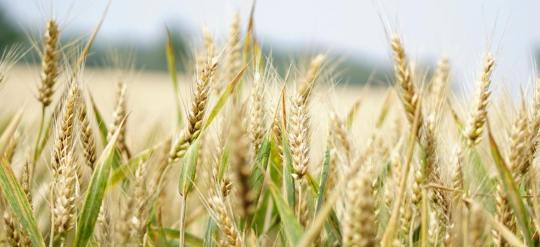
[ID: An image of yellow grain stocks, soon to be harvested. The several stocks reach towards a blurred open sky, focusing the camera on he grains themselves. The leaves of the grains are green and the cereals are exposed].
PAGANISM AND WITCHCRAFT ARE MOVEMENTS WITHIN A SELF-DESTRUCTIVE CAPITALIST SOCIETY. As the world becomes more aware of the importance of sustainability, so does the duty of humanity to uphold the idea of the steward, stemming from various indigenous worldviews, in the modern era. I make this small introduction as a viticulturist working towards organic and environmentally friendly grape production. I also do work on a food farm, as a second job—a regenerative farm, so I suppose that is my qualifications. Sustainable—or rather regenerative agriculture—grows in recognition. And as paganism and witchcraft continue to blossom, learning and supporting sustainability is naturally a path for us to take. I will say that this is influenced by I living in the USA, however, there are thousands of groups across the world for sustainable agriculture, of which tend to be easy to research.
So let us unite in caring for the world together, and here is an introduction to supporting sustainable/regenerative agriculture.
A QUICK BRIEF ON SUSTAINABLE AGRICULTURE
Sustainable agriculture, in truth, is a movement to practise agriculture as it has been done for thousands of years—this time, with more innovation from science and microbiology especially. The legal definition in the USA of sustainable agriculture is:
The term ”sustainable agriculture” (U.S. Code Title 7, Section 3103) means an integrated system of plant and animal production practices having a site-specific application that will over the long-term:
A more common man’s definition would be farming in a way that provides society’s food and textile needs without overuse of natural resources, artificial supplements and pest controls, without compromising the future generation’s needs and ability to produce resources. The agriculture industry has one of the largest and most detrimental impacts on the environment, and sustainable agriculture is the alternative movement to it.
Sustainable agriculture also has the perk of being physically better for you—the nutrient quality of crops in the USA has dropped by 47%, and the majority of our food goes to waste. Imagine if it was composted and reused? Or even better—we buy only what we need. We as pagans and witches can help change this.
BUYING ORGANIC (IT REALLY WORKS)
The first step is buying organic. While cliche, it does work: organic operations have certain rules to abide by, which excludes environmentally dangerous chemicals—many of which, such as DDT, which causes ecological genocide and death to people. Organic operations have to use natural ways of fertilising, such as compost, which to many of us—such as myself—revere the cycle of life, rot, and death. Organic standards do vary depending on the country, but the key idea is farming without artificial fertilisers, using organic seeds, supplementing with animal manure, fertility managed through management practices, etc.
However, organic does have its flaws. Certified organic costs many, of which many small farmers cannot afford. The nutrient quality of organic food, while tending to be better, is still poor compared to regeneratively grown crops. Furthermore, the process to become certified organic is often gruelling—you can practise completely organically, but if you are not certified, it is not organic. Which, while a quality control insurance, is both a bonus and a hurdle.
JOINING A CSA
Moving from organic is joining a CSA (“Community supported agriculture”). The USDA defines far better than I could:
Community Supported Agriculture (CSA), one type of direct marketing, consists of a community of individuals who pledge support to a farm operation so that the farmland becomes, either legally or spiritually, the community’s farm, with the growers and consumers providing mutual support and sharing the risks and benefits of food production.
By purchasing a farm share, you receive food from the farm for the agreed upon production year. I personally enjoy CSAs for the relational aspect—choosing a CSA is about having a relationship, not only with the farmer(s), but also the land you receive food from. I volunteer for my CSA and sometimes I get extra cash from it—partaking in the act of caring for the land. Joining a CSA also means taking your precious capital away from the larger food industry and directly supporting growers—and CSAs typically practise sustainable and/or regenerative agriculture.
CSAs are also found all over the world and many can deliver their products to food deserts and other areas with limited agricultural access. I volunteer from time to time for a food bank that does exactly that with the produce I helped grow on the vegetable farm I work for.
FARM MARKETS AND STALLS
Another way of personally connecting to sustainable agriculture is entering the realm of the farm stall. The farmer’s market is one of my personal favourite experiences—people buzzing about searching for ingredients, smiles as farmers sell crops and products such as honey or baked goods, etc. The personal connection stretches into the earth, and into the past it buries—as I purchase my apples from the stall, I cannot help but see a thousand lives unfold. People have been doing this for thousands of years and here I stand, doing it all over again.
Advertisement
Farmers’ markets are dependent on your local area, yet in most you can still develop personal community connections. Paganism often stresses community as an ideal and a state of life. And witchcraft often stresses a connection to the soil. What better place, then, is purchasing the products from the locals who commune with the land?
VOLUNTEERING
If you are able to, I absolutely recommend volunteering. I have worked with aquaponic systems, food banks, farms, cider-making companies, soil conservation groups, etc. There is so much opportunity—and perhaps employment—in these fields. The knowledge I have gained has been wonderful. As one example, I learned that fertilisers reduce carbon sequestration as plants absorb carbon to help with nutrient intake. If they have all their nutrients ready, they do not need to work to obtain carbon to help absorb it. This does not even get into the symbiotic relationship fungi have with roots, or the world of hyphae. Volunteering provides community and connection. Actions and words change the world, and the world grows ever better with help—including how much or how little you may provide. It also makes a wonderful devotional activity.
RESOURCING FOOD AND COOKING
Buying from farmers is not always easy, however. Produce often has to be processed, requiring labour and work with some crops such as carrots. Other times, it is a hard effort to cook and many of us—such as myself—often have very limited energy. There are solutions to this, thankfully:
Many farmers can and will process foods. Some even do canning, which can be good to stock up on food and lessen the energy inputs.
Value-added products: farms also try to avoid waste, and these products often become dried snacks if fruit, frozen, etc.
Asking farmers if they would be open to accommodating this. Chances are, they would! The farmer I purchase my CSA share from certainly does.
Going to farmers markets instead of buying a CSA, aligning with your energy levels.
And if any of your purchased goods are going unused, you can always freeze them.
DEMETER, CERES, VEIA, ETC: THE FORGOTTEN AGRICULTURE GODS
Agricultural gods are often neglected. Even gods presiding over agriculture often do not have those aspects venerated—Dionysos is a god of viticulture and Apollon a god of cattle. While I myself love Dionysos as a party and wine god, the core of him remains firmly in the vineyards and fields, branching into the expanses of the wild. I find him far more in the curling vines as I prune them than in the simple delights of the wine I ferment. Even more obscure gods, such as Veia, the Etruscan goddess of agriculture, are seldom known.
Persephone receives the worst of this: I enjoy her too as a dread queen, and people do acknowledge her as Kore, but she is far more popular as the queen of the underworld instead of the dear daughter of Demeter. I do understand this, though—I did not feel the might of Demeter and Persephone until I began to move soil with my own hands. A complete difference to the ancient world, where the Eleusinian mysteries appealed to thousands. Times change, and while some things should be left to the past, our link to these gods have been severed. After all, how many of us reading know where our food comes from? I did not until I began to purchase from the land I grew to know personally. The grocery store has become a land of tearing us from the land, instead of the food hub it should be.
Yet, while paganism forgets agriculture gods, they have not forgotten us. The new world of farming is more conductive and welcoming than ever. I find that while older, bigoted people exist, the majority of new farmers tend to be LGBT+. My own boss is trans and aro, and I myself am transgender and gay. The other young farmers I know are some flavour of LGBT+, or mixed/poc. There’s a growing movement for Black farmers, elaborated in a lovely text called We Are Each Other’s Harvest.
Indigenous farming is also growing and I absolutely recommend buying from indigenous farmers. At this point, I consider Demeter to be a patron of LGBT+ people in this regard—she gives an escape to farmers such as myself. Bigotry is far from my mind under her tender care, as divine Helios shines above and Okeanos’ daughters bring fresh water to the crops. Paganism is also more commonly accepted—I find that farmers find out that I am pagan and tell me to do rituals for their crops instead of reacting poorly. Or they’re pagan themselves; a farmer I know turned out to be Wiccan and uses the wheel of the year to keep track of production.
Incorporating these divinities—or concepts surrounding them—into our crafts and altars is the spiritual step towards better agriculture. Holy Demeter continues to guide me, even before I knew it.
WANT CHANGE? DO IT YOURSELF!
If you want change in the world, you have to act. And if you wish for better agriculture, there is always the chance to do it yourself. Sustainable agriculture is often far more accessible than people think: like witchcraft and divination, it is a practice. Homesteading is often appealing to many of us, including myself, and there are plenty of resources to begin. There are even grants to help one improve their home to be more sustainable, i.e. solar panels. Gardening is another, smaller option. Many of us find that plants we grow and nourish are far more potentant in craft, and more receptive to magical workings.
Caring for plants is fundamental to our natures and there are a thousand ways to delve into it. I personally have joined conservation groups, my local soil conservation group, work with the NRCs in the USA, and more. The path to fully reconnecting to nature and agriculture is personal—united in a common cause to fight for this beautiful world. To immerse yourself in sustainable agriculture, I honestly recommend researching and finding your own path. Mine lies in soil and rot, grapevines and fruit trees. Others do vegetables and cereal grains, or perhaps join unions and legislators. Everyone has a share in the beauty of life, our lives stemming from the land’s gentle sprouts.
Questions and or help may be given through my ask box on tumblr—if there is a way I can help, let me know. My knowledge is invaluable I believe, as I continue to learn and grow in the grey-clothed arms of Demeter, Dionysos, and Kore.
FURTHER READING:
Baszile, N. (2021). We are each other’s harvest. HarperCollins.
Hatley, J. (2016). Robin Wall Kimmerer. Braiding Sweetgrass: Indigenous wisdom, scientific knowledge and the teachings of plants. Environmental Philosophy, 13(1), 143–145. https://doi.org/10.5840/envirophil201613137
Regenerative Agriculture 101. (2021, November 29). https://www.nrdc.org/stories/regenerative-agriculture-101#what-is
And in truth, far more than I could count.
References
Community Supported Agriculture | National Agricultural Library. (n.d.). https://www.nal.usda.gov/farms-and-agricultural-production-systems/community-supported-agriculture
Navazio, J. (2012). The Organic seed Grower: A Farmer’s Guide to Vegetable Seed Production. Chelsea Green Publishing.
Plaster, E. (2008). Soil Science and Management. Cengage Learning.
Sheaffer, C. C., & Moncada, K. M. (2012). Introduction to agronomy: food, crops, and environment. Cengage Learning.
Sheldrake, M. (2020). Entangled life: How Fungi Make Our Worlds, Change Our Minds & Shape Our Futures. Random House.
Sustainable Agriculture | National Agricultural Library. (n.d.). https://www.nal.usda.gov/farms-and-agricultural-production-systems/sustainable-agriculture
#dragonis.txt#witchcraft#paganism#hellenic polytheism#witchblr#pagan#helpol#hellenic pagan#hellenic worship#hellenic paganism#hellenic polytheist#demeter deity#demeter worship#persephone deity#kore deity#raspol#etrupol#etruscan polytheist#etruscan polytheism#rasenna polytheism#rasenna polytheist#rasenna paganism
303 notes
·
View notes
Text
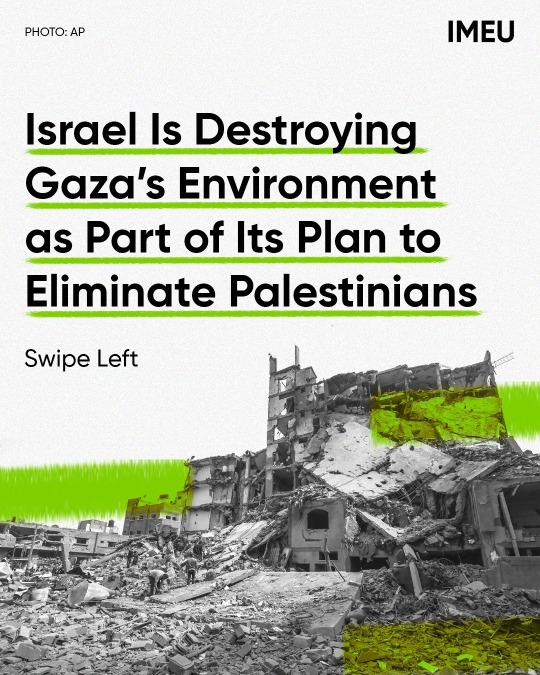
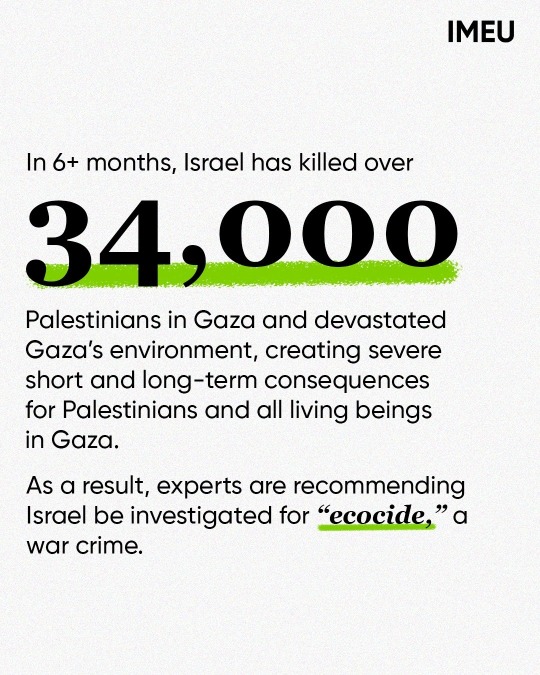
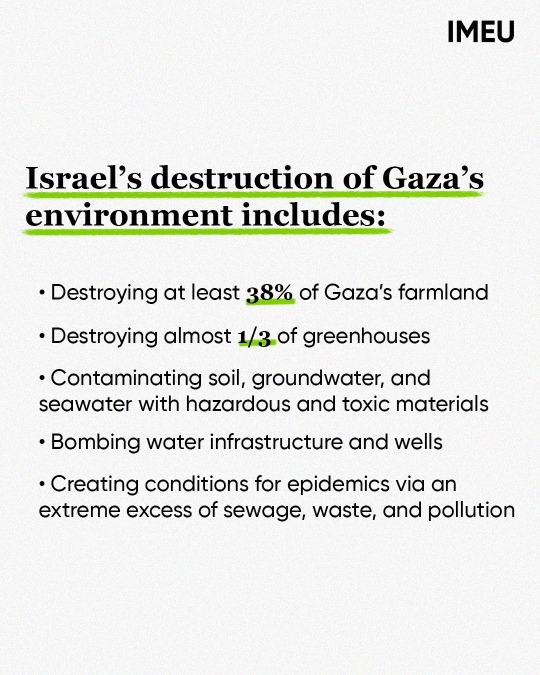

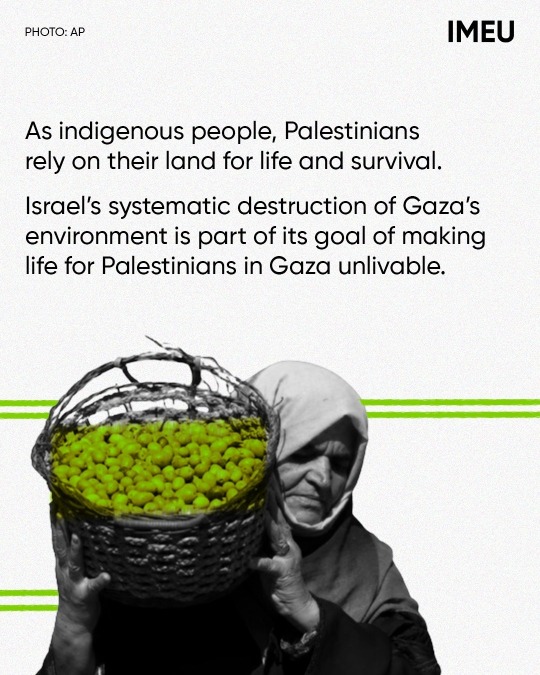
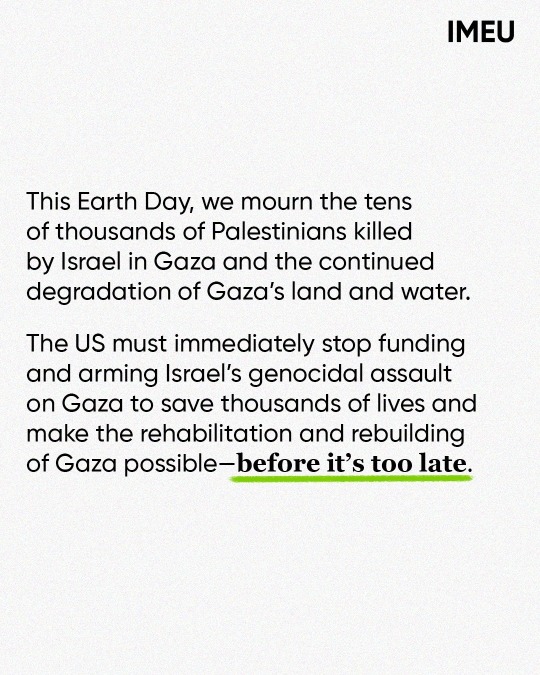
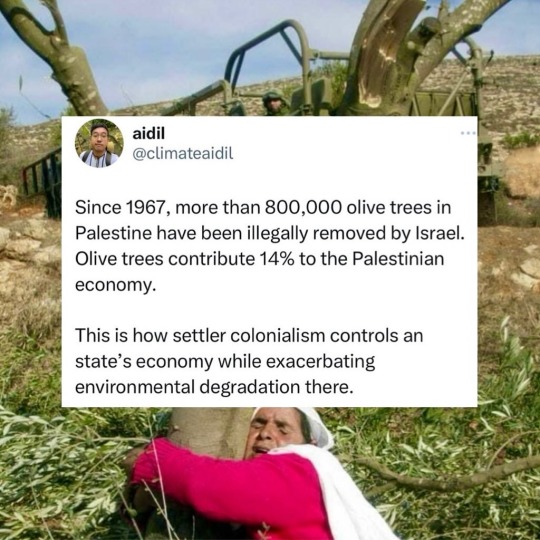
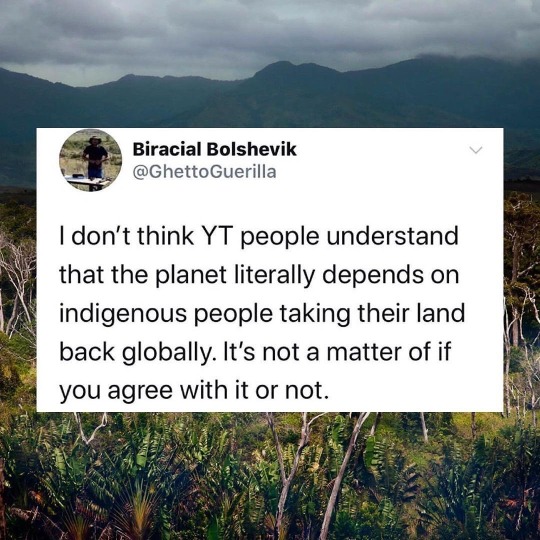
🌿An Earth Day fusion repost from @theimeu and @muchachafanzine.
🌿In honor of Earth Day, please visit @zaytoun_cic, @handmadepalestine, or @plant.eenolijfboom to plant an olive tree in Palestine. 🕊
🌿From @theimeu:
This Earth Day, we mourn the 34,000+ Palestinians killed by Israel in Gaza and Israel’s continued degradation of Gaza’s land, water, and other natural resources that make life possible for Palestinians.
In the past 6 months alone, Israel has destroyed farmland and greenhouses, contaminated natural resources with hazardous materials, bombed key water purifying infrastructure and wells, and created conditions for epidemics caused by an extreme excess of sewage, waste, and pollution.
Israel’s systematic destruction of Gaza’s environment is part of its goal of making life for Palestinians in Gaza unlivable.
Link in bio to contact your reps and urge an immediate, permanent ceasefire and the immediate suspension of all arms and funds to Israel.
Sources: The Guardian, Scientific American
🌿From @muchachafanzine:
Reminder this #EarthDay that from Turtle Island to Pa1estine, your environmentalism doesn’t mean sh!t if you don’t support giving the #LandBack to Indigenous people. 🤷🏽♀️
#land back#indigenous rights#indigenous resistance#indigenous peoples#human rights#palestine#free palestine#gaza#ecocide#ecology#environmental activism#environment#olive trees#free gaza#stop the genocide#earth day#natural resources#farming#land stewardship#israel#israel is committing genocide#israel is a terrorist state#israeli apartheid#israeli occupation#end the occupation#ceasefire now
122 notes
·
View notes
Text
“Lifeline,” Armin x Reader

Summary: You were his lifeline, he couldn’t live without you.
Warnings: None just slight angst, fluff, mentions of death and violence.
Armin x Fem!Reader
.
.
.
The air was filled with nothing but smoke and ash as it rained down on all the scouts. Everyone was growing tired as the fighting continued for far too long, the giant titans continuing their destruction upon the ground and the people who were in their path.
You couldn’t risk taking your eyes off of these gruesome titans, not even for a second to look over to see if everyone else was alright, including Armin.
But as the fighting stopped, the giant titans freezing in their spots, you grew confused until everyone had gone down.
The sight of Eren had sent Armin tumbling to the ground, his screams echoing in the distance. The pain in your chest growing as you stepped closer, resting a hand on his shoulder with a reassuring squeeze.
The following few days after Eren had been killed, there was a lingering sadness in the air along with relief. The scout base was entirely empty and quiet which led for you and Armin to leave and stay away from the base because of its faint memories.
The both of you sat on the tree at the top of the hill, something Armin had been doing a lot recently since this was Eren’s burial site.
The both of you stayed silent, you sat beside him, being there for support and to remind him that he wasn’t alone.
It took a big chunk out of him at first, the depression consuming him at the reminder of his best friend being dead. He would sometimes ignore you or hide in the bedroom away from everything and everyone.
You didn’t know what to do at first besides letting him mourn and process the grief. Then he started to come out but only to visit Eren with you following closely behind him.
Armin didn’t want to admit how truly depressed he was but he was grateful for you to be there. You were like his personal lifeline, without you he was sure he would be dead beside Eren.
A few weeks had gone by, the sadness in his chest was slowly lifting off of him as he began to accept the fate that Eren had set for himself, the reminder of his talk with Eren and how he said he would want Armin to be happy.
As the time went on, you had decided to go out of your way to buy something you and Armin had talked about quite a lot when you both had the chance. A home with farmland big enough for any and everything you both would want in life.
You made sure to stay close knowing Armin would want to continue his visits to his best friend for his occasional talks with him. You didn’t want to be the one to drag him away from his life, from his friend, from anything that he has ever known here.
“Close your eyes.” You mumbled, urging him to close his eyes as he placed his large hands over them, a small smile creeping on his face.
“They’re close, I swear.” He said, making you crack a smile and start carefully leading him to the place you have been keeping a secret.
“We’ve been walking for an awful long time, Y/N.” Armin was growing worried, curious as to where you were taking him.
“Shhh, we’re here.” You let go of his arm, walking ahead and turning around to where you were in view for when he opened his eyes.
The excitement bubbling up inside of you, wondering what his reaction would be like, hoping it would be a good one. You knew he needed this, he needed the freedom, needed to step out of his comfort zone. Armin needed to push boundaries and start to live his life the way Eren would want him to.
“Okay, open them up.”
You stood there, awkwardly fiddling with your fingers unsure of what to do or how to stand for when he would uncover his eyes.
His hands moved down, eyes still closed as if he was hesitant for a quick moment until you suddenly saw his bright blue eyes appear. His eyes scanned around the area, the large home in the distance behind you, to the far right was a large barn, fencing, and even a couple of animals you decided to bring in to make it more like home.
The nervous smile was on your face, scared of receiving a bad reactions but you saw the smile creep up on the corner of his lips until it was wide.
Armin felt his heart swell, the memories flashing of the relationship you both have shared the last few years. You both didn’t meet until he had joined the scouts, you were already apart of it, a year ahead of him and even were in a position to help train him.
Then you two bonded over simple adventures you both dreamed of. The nights where you two would watch the stars, the confession of him wanting to see the ocean and even confessing that he would want you to see it with him.
Armin was too shy during that time to admit his feelings for you, so you decided to make the first move which he always liked the most about you, the confidence, the love radiating off of your body more and more as your relationship progressed.
Your love language was gift giving, something he loved and as he looked at this house, at you, he couldn’t help but love you even more.
“You remember what we talked about? Living a life like this once things were finally… normal?” You tried to word it better, your voice trailing off.
“Yes, of course.” He nodded, remembering the conversations.
“I know we also wanted a beach house but you know..” You started to say.
“I didn’t want you to be too far away from Eren.. or Mikasa.” You sucked in a breath, the relief washing over you once Armin had stepped forward and embraced you in a tight hug.
He appreciated everything you always did for him, the support, the love, everything. He hasn’t been himself since Eren died, he felt guilty for pushing you away, for ignoring you, for acting like he didn’t care about you but he was extremely grateful for you being there to hold his hand no matter what.
He knew you were placed into his life for a reason, you were here to help him live his life the way he was supposed to. You were here to make him happy, to push him to be better. You were even here to keep him alive plenty of times, the countless times you had saved him from Titans and even saved him from himself.
You were so many things to him. The love of his life, his savior, his happiness, his peace, his lifeline and he couldn’t help but think about you being his wife, the mother of his kids.
Armin couldn’t help but tear up, the water filling his bright eyes, the feeling of love filling his chest as his arms were tightly secured around your body as if he was afraid to let go.
“Thank you.” He mumbled into your hair, your arms wrapping around his waist and burying the side of your face into his chest.
“I’ll do anything for you.” You replied back, feeling him pull away just a smidge, both of your eyes connecting as his hands cupped your face.
His hands gentle and soft, tracing small circles on your cheeks with his thumbs. He was in absolute awe as he looked over your features, his lips curving up in a smile before leaning down to press a long kiss to your lips just for a moment.
As his body relaxed against you, he couldn’t help but feel that lingering feeling as if someone was standing behind him. The feeling of familiarity as he stood in front of you and in that moment he was convinced that Eren was there with the both of them, watching and smiling at what the both of you had accomplished so far since he’s been gone.
Even though it was a painful reminder that now his best friend wouldn’t be there to experience all of this too or grow old with them and be able to have those dumb cookouts with their kids and talk about lame sports or about their kids achievements, Armin was still proud of Eren and loved him deeply like a brother.
As the week went by, the both of you moving your stuff in, settling in, and even buying more farm animals to fill the farm you both had in the backyard, there was one night where the both of you sat on the porch.
The rocking chair swaying back and forth as you both looked up at the night sky, the stars shining and the moon full.
“Do you think everything that happened was supposed to happen that way?” Armin asked you, the question randomly popping up in his brain.
It had been a busy week and he hates to admit that since before moving in here, he hasn’t thought about those depressing thoughts or about what had happened.
“I’m a believer in everything happens for a reason.” You replied, glancing over as you used your feet to sway the rocking chair back and forth.
You noticed Armin staring up at the sky, his eyes soften but almost looked sad as if he was deep into thought about something that upset him.
It had came to you about what he was thinking about, the obvious coming into mind.
“He’s proud of you, you know.” You simply said, your tone soft, your small hand reaching over to grab a hold of his.
You felt him gently squeeze it, not looking away from the stars that had shined brightly above. He had released a small breath of relief, almost as if he had been holding onto that breath for a while.
“I know.”
.
.
.
.
.
.
A/N:
short and sweet I don’t know. I just wanted to post something for you guys since you have been waiting and I always love a good Armin short story 😔
• AOT MASTERLIST •
• MAIN MASTERLIST •
#aot imagines#armin imagines#armin arlert imagines#armin arlert headcanons#armin headcanons#armin fanfic#armin arlert x reader#armin imagine#armin x reader#armin arlert#armin aot#armin x you#aot fanfic#aot headcanons
51 notes
·
View notes
Text
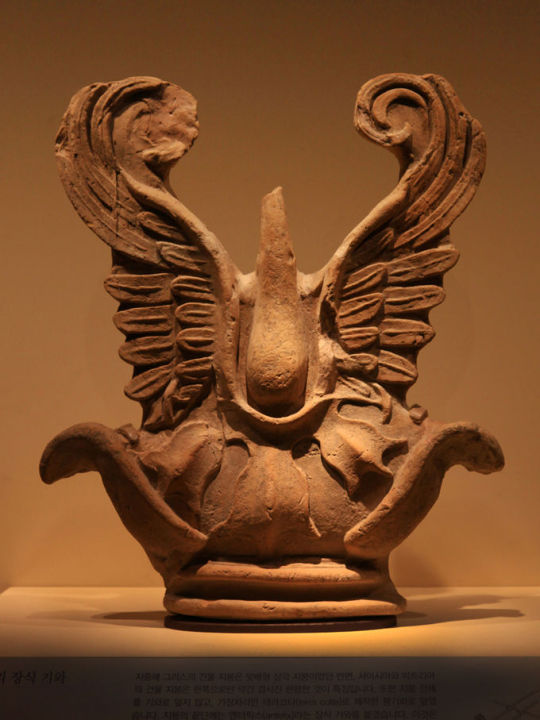


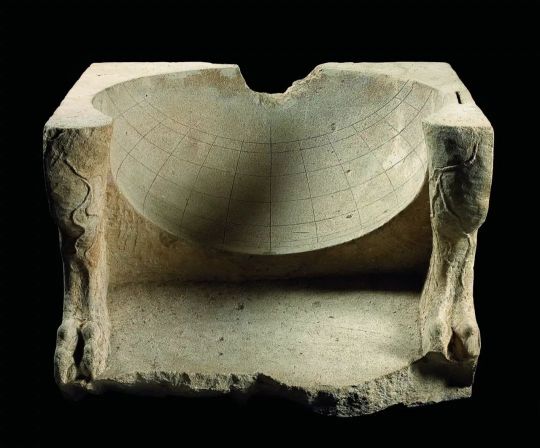
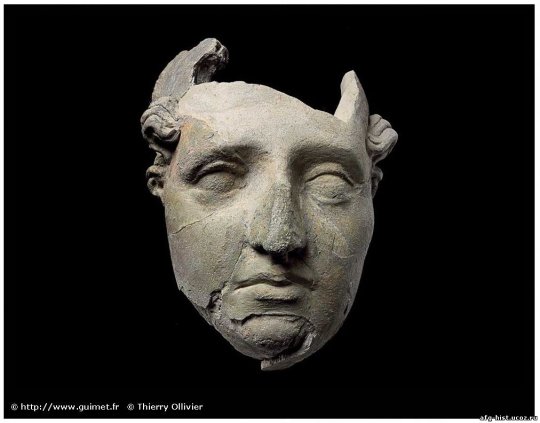
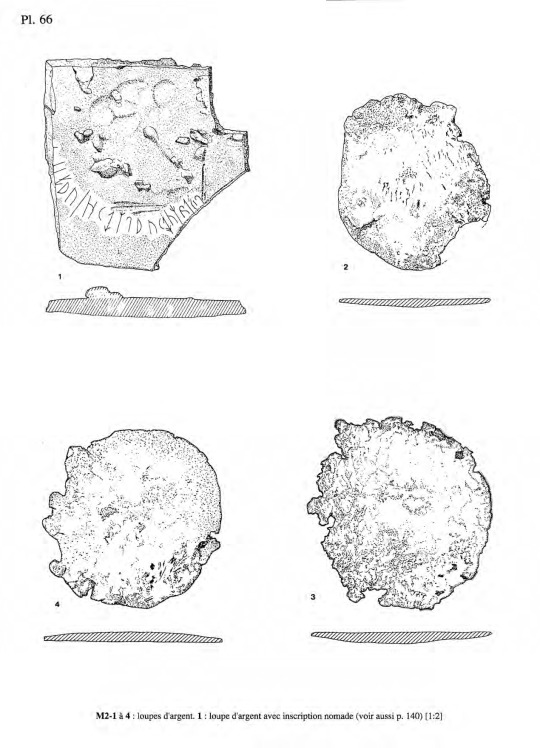
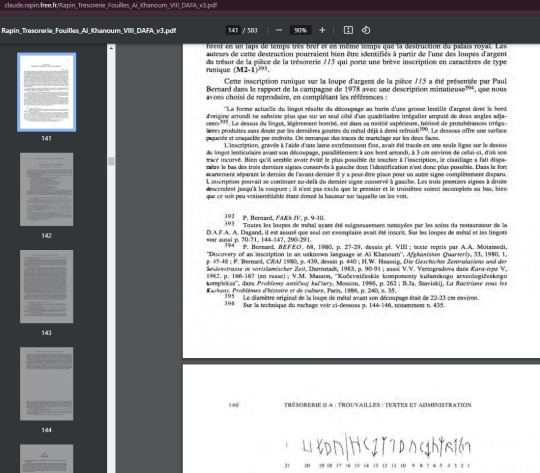
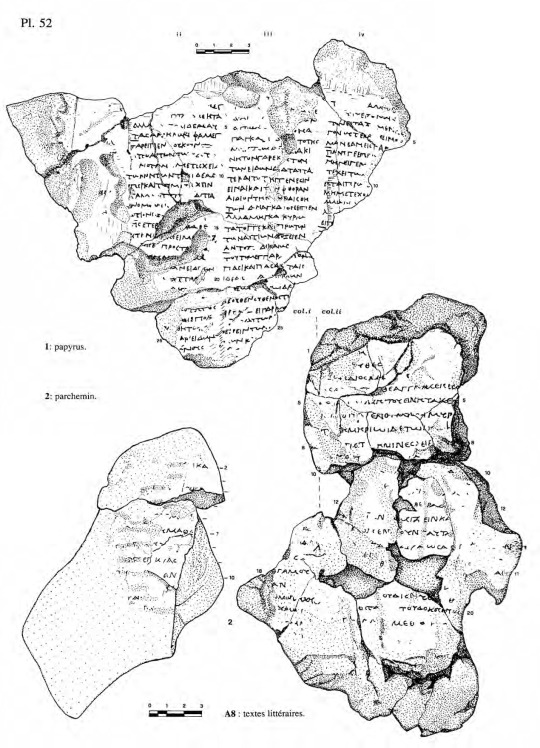
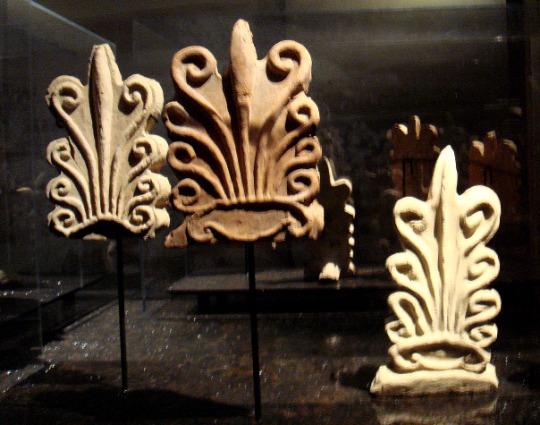

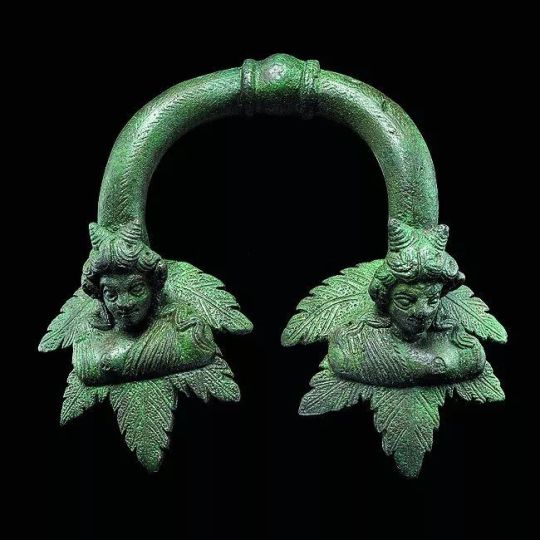


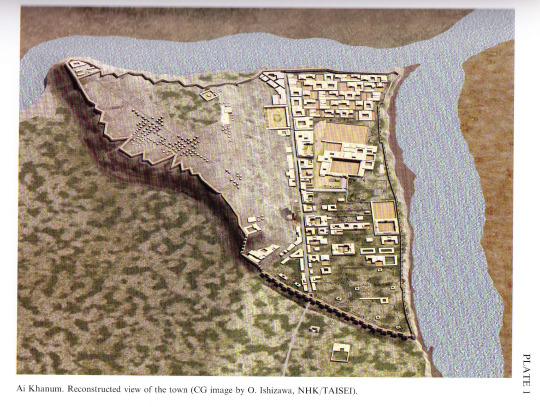
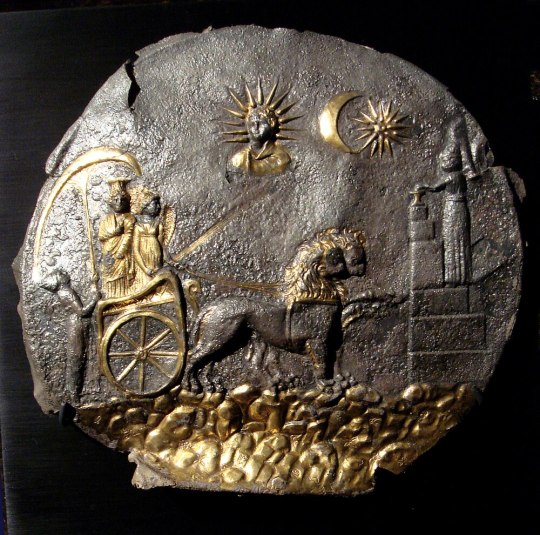

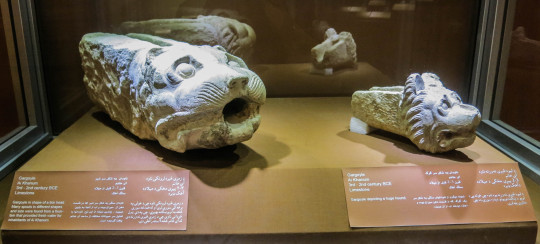

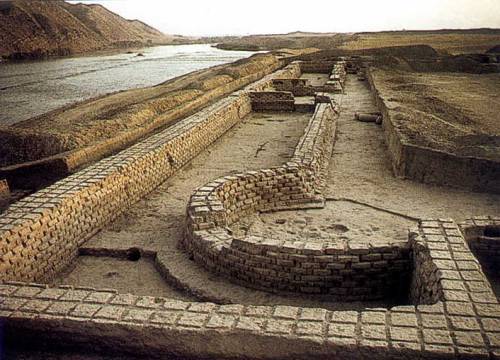


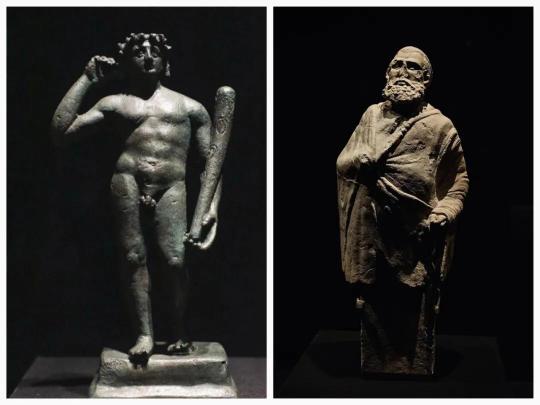
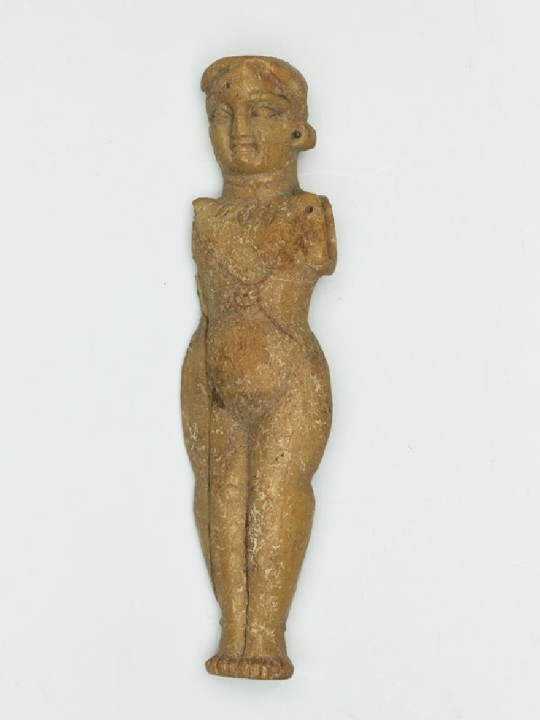





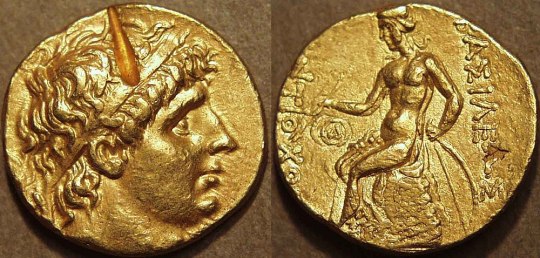

Ai Khanoum 3rd C. BCE - 2nd C. CE. More images on my blog, link at bottom.
"These wise sayings of men of old,
The words of famous men, are consecrated
At holy Delphi, where Klearchos copied them from carefully
To set them up, shining from afar, in the sanctuary of Kineas.
As a child, be well behaved;
As a young man, self-controlled;
In middle age, be just;
As an elder, be of good counsel;
And when you come to the end, be without grief.
—trans. of Ai Khanoum stele by Shane Wallace and Rachel Mairs.
Ai-Khanoum (/aɪ ˈhɑːnjuːm/, meaning Lady Moon; Uzbek Latin: Oyxonim) is the archaeological site of a Hellenistic city in Takhar Province, Afghanistan. The city, whose original name is unknown, was likely founded by an early ruler of the Seleucid Empire and served as a military and economic centre for the rulers of the Greco-Bactrian Kingdom until its destruction c. 145 BC. Rediscovered in 1961, the ruins of the city were excavated by a French team of archaeologists until the outbreak of conflict in Afghanistan in the late 1970s.
The city was probably founded between 300 and 285 BC by an official acting on the orders of Seleucus I Nicator or his son Antiochus I Soter, the first two rulers of the Seleucid dynasty. There is a possibility that the site was known to the earlier Achaemenid Empire, who established a small fort nearby. Ai-Khanoum was originally thought to have been a foundation of Alexander the Great, perhaps as Alexandria Oxiana, but this theory is now considered unlikely. Located at the confluence of the Amu Darya (a.k.a. Oxus) and Kokcha rivers, surrounded by well-irrigated farmland, the city itself was divided between a lower town and a 60-metre-high (200 ft) acropolis. Although not situated on a major trade route, Ai-Khanoum controlled access to both mining in the Hindu Kush and strategically important choke points. Extensive fortifications, which were continually maintained and improved, surrounded the city.
Many of the present ruins date from the time of Eucratides I, who substantially redeveloped the city and who may have renamed it Eucratideia, after himself. Soon after his death c. 145 BC, the Greco-Bactrian kingdom collapsed—Ai-Khanoum was captured by Saka invaders and was generally abandoned, although parts of the city were sporadically occupied until the 2nd century AD. Hellenistic culture in the region would persist longer only in the Indo-Greek kingdoms.
It is likely that Ai-Khanoum was already under attack by nomadic tribes when Eucratides was assassinated in around 144 BC. This invasion was probably carried out by Saka tribes driven south by the Yuezhi peoples, who in turn formed a second wave of invaders, in around 130 BC. The treasury complex shows signs of having been plundered in two assaults, fifteen years apart.
Although the first assault led to the end of Hellenistic rule in the city, Ai-Khanoum continued to be inhabited; it remains unknown whether this reoccupation was effected by Greco-Bactrian survivors or nomadic invaders. During this time, public buildings such as the palace and sanctuary were repurposed as residential dwellings and the city maintained some semblance of normality: some sort of authority, possibly cultish in origin, encouraged the inhabitants to reuse the raw building materials now freely available in the city for their own ends, whether for construction or trade. A silver ingot engraved with runic letters and buried in a treasury room provides support for the theory that the Saka occupied the city, with tombs containing typical nomadic grave goods also being dug into the acropolis and the gymnasium. The reoccupation of the city was soon terminated by a huge fire. It is unknown when the final occupants of Ai-Khanoum abandoned the city. The final signs of any habitation date from the 2nd century AD; by this time, more than 2.5 metres (8.2 ft) of earth had accumulated in the palace.
While on a hunting trip in 1961, the King of Afghanistan, Mohammed Zahir Shah, rediscovered the city. An archaeological delegation, led by Paul Bernard, unearthed the remains of a huge palace in the lower town, along with a large gymnasium, a theatre capable of holding 6,000 spectators, an arsenal, and two sanctuaries. Several inscriptions were found, along with coins, artefacts, and ceramics. The onset of the Soviet-Afghan War in the late 1970s halted scholarly progress and during the following conflicts in Afghanistan, the site was extensively looted."
-taken from Wikipedia
...
"The silver ingot engraved with runic characters found during the excavations of the Treasury could suggest they were Sakā/Sai. This inscription comprises 21 characters of a script and a language that are unknown and both attributed to nomadic people of Sakā origin, by comparison with a dozen similar inscriptions coming from an area extending from Ghazni in Afghanistan to Almaty in Kazakhstan, and dated between the 5th century BC and the 8th century AD."
-taken from Ai Khanoum after 145 BC: The Post-Palatial Occupation by Laurianne Martinez-Sève, University of Lille, 2018
#ancient history#antiquities#art#paganism#statue#museums#sculpture#history#greek art#greek gods#ancient greek#greek myth#scythian#pagan#ancient art#afghanistan
193 notes
·
View notes
Text
The full extent of the damage in Gaza has not yet been documented, but analysis of satellite imagery provided to the Guardian shows the destruction of about 38-48% of tree cover and farmland.
Olive groves and farms have been reduced to packed earth; soil and groundwater have been contaminated by munitions and toxins; the sea is choked with sewage and waste; the air polluted by smoke and particulate matter.
Researchers and environmental organisations say the destruction will have enormous effects on Gaza’s ecosystems and biodiversity. The scale and potential long-term impact of the damage have led to calls for it to be regarded as “ecocide” and investigated as a possible war crime.
[...]
He Yin, an assistant professor of geography at Kent State University in the US, who studied the damage to agricultural land in Syria during the 2011 civil war, analysed satellite imagery showing that up to 48% of Gaza’s tree cover had been lost or damaged between 7 October and 21 March.
As well as direct destruction from the military onslaught, the lack of fuel has led to people in Gaza having to cut down trees wherever they can find them to burn for cooking or heating.
“It’s whole orchards gone, only soil left; you don’t see a single thing,” Yin says.
Independent satellite analysis by Forensic Architecture (FA), a London-based research group that investigates state violence, found similar results.
Before 7 October, farms and orchards covered about 170 sq km (65 sq miles), or 47% of Gaza’s total land area. By the end of February, FA estimates from satellite data that Israeli military activity had destroyed more than 65 sq km, or 38% of that land.
As well as cultivated land, more than 7,500 greenhouses formed a vital part of the territory’s agricultural infrastructure.
Almost a third have been destroyed entirely, according to FA’s analysis, ranging from up to 90% in the north of Gaza to about 40% around Khan Younis.
514 notes
·
View notes